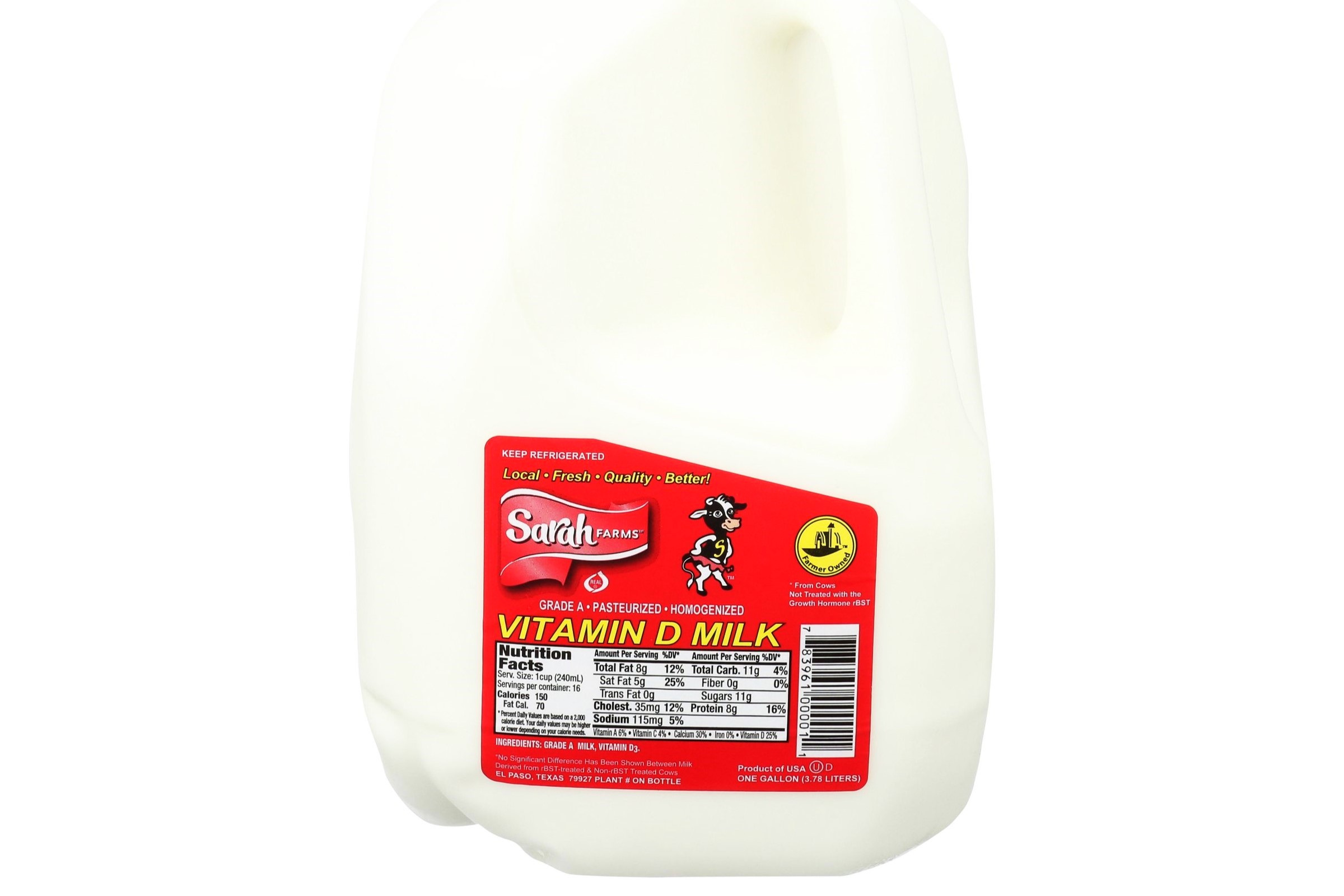
Vitamin D is an essential nutrient that plays a crucial role in our overall health and well-being. It is often referred to as the “sunshine vitamin” because our bodies can naturally produce it when exposed to sunlight. However, many people do not get enough sun exposure or are unable to convert sunlight into vitamin D efficiently. That is where whole milk comes in as a valuable source of this vital nutrient.
Whole milk is packed with numerous nutrients, including calcium, protein, and several vitamins. But what sets it apart is its high vitamin D content. In this article, we will explore 15 vitamin D whole milk nutrition facts, shedding light on why it is an excellent addition to a balanced diet and offering insights into its benefits for both children and adults.
Key Takeaways:
- Whole milk is packed with vitamin D, calcium, and protein, which are essential for strong bones, muscle growth, and immune support. It’s a versatile ingredient that can be used in many tasty recipes.
- Drinking whole milk in moderation can contribute to hydration and overall health. It’s great for bone strength, muscle recovery, and even promoting healthy skin. Just remember, balance is key!
Vitamin D Content
Whole milk is an excellent source of vitamin D. It contains approximately 115-124 IU (international units) of vitamin D per cup. Vitamin D is essential for promoting bone health and supporting the immune system.
Calcium Content
In addition to vitamin D, whole milk is rich in calcium. It provides around 276-296 mg of calcium per cup. Calcium is crucial for maintaining strong bones and teeth.
Protein Content
Whole milk is a good source of protein, containing about 8 g of protein per cup. Protein is essential for muscle growth and repair.
Fat Content
Whole milk is higher in fat compared to low-fat or skim milk varieties. It typically contains about 8 g of fat per cup. The fat in milk provides energy and helps absorb fat-soluble vitamins.
Calories
A cup of whole milk has approximately 150-160 calories. Moderation is key when incorporating whole milk into your diet to maintain a balanced calorie intake.
Carbohydrate Content
Whole milk contains around 12 g of carbohydrates per cup. These carbohydrates provide fuel for the body.
Vitamins and Minerals
Whole milk is a good source of various vitamins and minerals, including vitamin A, vitamin B12, riboflavin, phosphorus, and potassium.
Nutrient Absorption
The presence of fat in whole milk aids in the absorption of fat-soluble vitamins like vitamin D, vitamin A, vitamin E, and vitamin K.
Hydration
Drinking whole milk can contribute to overall hydration due to its water content. Staying hydrated is important for various bodily functions.
Bone Health
The combination of vitamin D and calcium in whole milk is beneficial for maintaining strong and healthy bones, reducing the risk of osteoporosis.
Muscle Recovery
Protein in whole milk plays a vital role in muscle repair and recovery, making it a popular choice among athletes and fitness enthusiasts.
Growth and Development
Children and teenagers can benefit from the nutrients in whole milk, as they support proper growth and development during crucial stages.
Heart Health
Contrary to previous beliefs, recent studies suggest that moderate consumption of whole milk may not significantly impact heart health. However, it’s still important to maintain a balanced diet.
Skin Health
Vitamin D in whole milk may contribute to healthy skin by promoting cell growth and preventing certain skin conditions.
Versatility
Whole milk is a versatile ingredient that can be used in various recipes, such as smoothies, desserts, sauces, and baked goods.
Conclusion
In conclusion, whole milk is not only delicious but also a great source of Vitamin D. The 15 nutrition facts mentioned in this article highlight the importance of including whole milk in your diet. From supporting bone health to boosting the immune system, Vitamin D plays a crucial role in our overall well-being. Remember, moderation is key when consuming whole milk, as it is high in calories and saturated fat. Incorporating other dairy products and foods rich in Vitamin D can provide a balanced and diverse diet. So indulge in a glass of whole milk and reap the benefits of this nutrient-packed beverage!
FAQs
Q: How much Vitamin D is there in whole milk?
A: Whole milk contains approximately 115 to 124 International Units (IU) of Vitamin D per cup.
Q: Can whole milk help prevent Vitamin D deficiency?
A: Yes, consuming whole milk can help prevent Vitamin D deficiency, as it is one of the few natural food sources of this essential nutrient.
Q: Is whole milk the only source of Vitamin D?
A: No, besides whole milk, other sources of Vitamin D include fatty fish, fortified dairy products, eggs, and exposure to sunlight.
Q: How does Vitamin D benefit our health?
A: Vitamin D plays a crucial role in maintaining bone health, supporting the immune system, regulating mood, and promoting overall well-being.
Q: Can whole milk be consumed by lactose-intolerant individuals?
A: Whole milk contains lactose, which can cause discomfort for lactose-intolerant individuals. They can opt for lactose-free milk or other sources of Vitamin D.
Was this page helpful?
Our commitment to delivering trustworthy and engaging content is at the heart of what we do. Each fact on our site is contributed by real users like you, bringing a wealth of diverse insights and information. To ensure the highest standards of accuracy and reliability, our dedicated editors meticulously review each submission. This process guarantees that the facts we share are not only fascinating but also credible. Trust in our commitment to quality and authenticity as you explore and learn with us.
